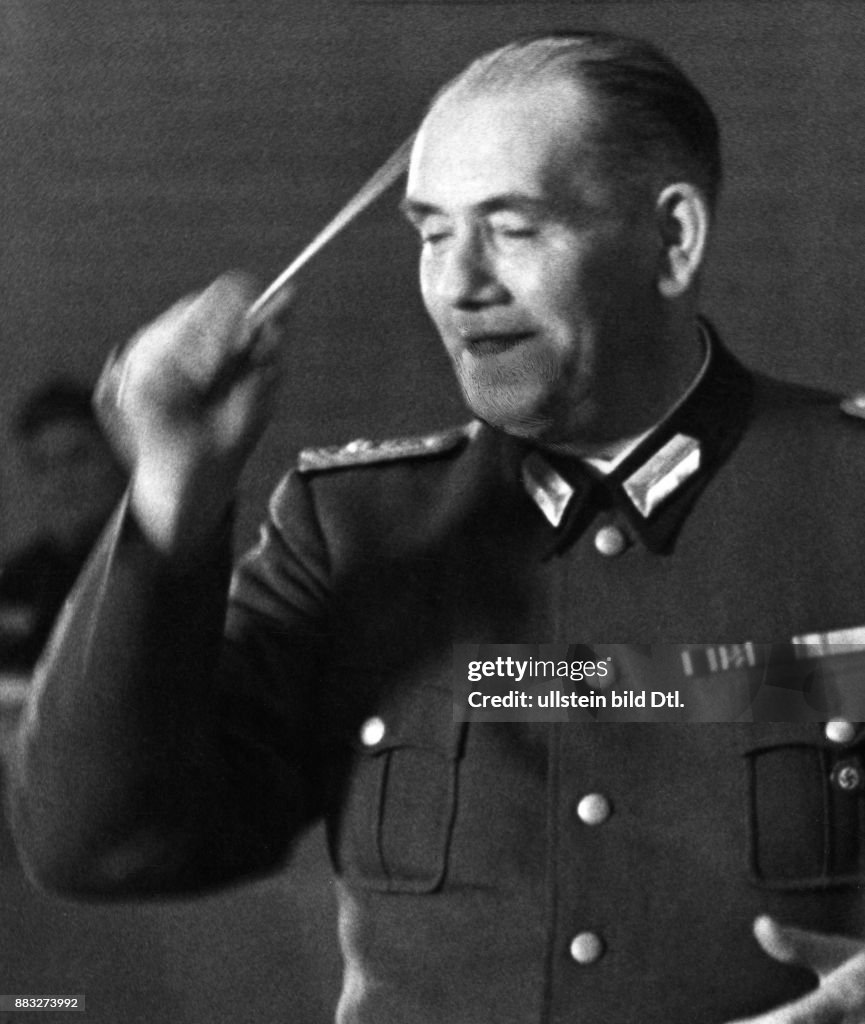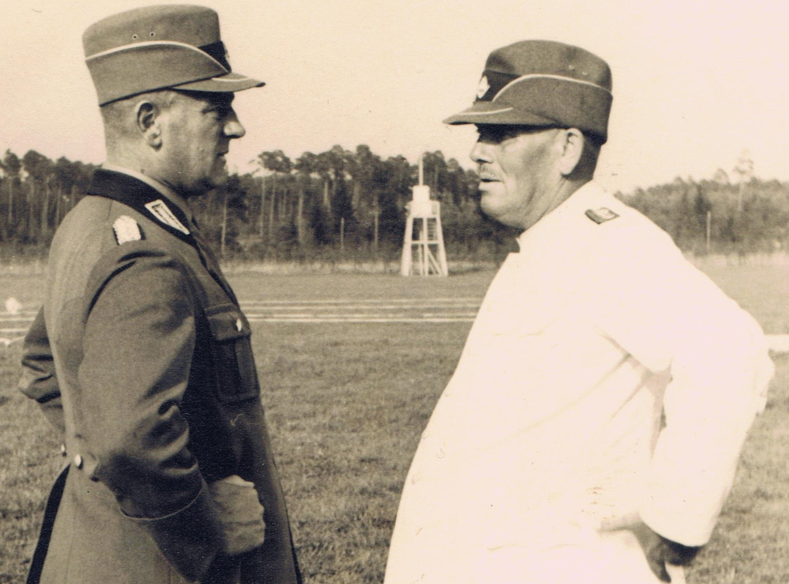Did a seemingly innocuous military march, penned in the 1930s, inadvertently become a symbol of a dark era? The story of "Erika," a song composed by Herms Niel, illustrates how art can be appropriated, its original intent overshadowed by the tides of history and the powerful currents of political ideology.
Born on April 17, 1888, in Niederbeuthen, Province of Saxony, Kingdom of Prussia, German Empire, Herms Niel would become a figure inextricably linked to the anthems of the Third Reich. His life, however, began far removed from the ominous shadow that would later be cast upon his work. Niel's musical journey commenced in the years following the First World War, a period when Germany was navigating the tumultuous waters of social and political upheaval.
The song "Erika," composed in 1939, is a German marching song. Initially, the lyrics and melody of the song didn't convey any political meaning. In the context of Niel's life and work, it's essential to understand the cultural milieu of pre-war and wartime Germany. The rise of Nazism profoundly impacted every facet of life, including music. The regime sought to control and utilize art as a tool for propaganda and to reinforce its ideology. Popular and simple songs were recognized by figures like Joseph Goebbels as valuable propaganda tools. Niel's compositions, with their catchy tunes and patriotic undertones, were thus ideally suited to the regime's agenda.
- Joe Liebermans Net Worth A Financial Overview Legacy
- Woody Allen Net Worth 2024 How He Made His Fortune
The song's adoption by the Wehrmacht during World War II is a pivotal moment in its history. While the song's lyrics didn't explicitly promote Nazi ideology, the association with the German military during a period of immense suffering and destruction became undeniable. "Erika" became a marching song, played and sung by soldiers as they marched across Europe.
Niel, who joined the Nazi Party in 1933, was a composer of military songs and marches. His work was embraced by the Nazi regime as it provided the catchy tunes and patriotic sentiments that were required for propaganda. In addition to "Erika," he penned other popular songs, including "Antje, mein blondes Kind," "Es war ein Edelweiss," "Adlerlied," and "Rosemarie." His contributions to the musical landscape of the time were undeniable, even if they were tainted by the context in which they were created. He also held the role of bandmaster in the 423rd Infantry Regiment's military band. He was involved in the First World War, and returned in 1918, before becoming a small civil servant at a tax office.
Niel's personal life reveals a man who had a passion for music and nature. His love of nature, which often found its way into his compositions, is a testament to his artistic soul. The composer found inspiration in the beauty of the Sanssouci Park in Potsdam. The park inspired his first hit. He was an avid hunter, and his love of the natural world is reflected in the music he produced, creating a stark contrast with the events in which his music was associated.
His military experience and his ability to create marching songs propelled his career, allowing him to conduct the RAD music bands at the Nuremberg rallies and to create other military anthems.
| Category | Details |
|---|---|
| Full Name | Herms Niel |
| Born | April 17, 1888, Niederbeuthen, Province of Saxony, Kingdom of Prussia, German Empire |
| Died | July 15, 1954 (aged 66), Lingen, West Germany |
| Nationality | German |
| Occupation | Composer of military songs and marches |
| Known For | "Erika," "Es war ein Edelweiss," "Antje, mein blondes Kind," "Adlerlied," "Rosemarie" |
| Military Service | Served in World War I, Bandmaster of the 423rd Infantry Regiment's military band |
| Political Affiliation | Joined the Nazi Party in 1933 |
| Other Roles | Conducted RAD music bands at the Nuremberg rallies |
| Musical Style | Military marches, patriotic songs |
| Inspiration | Sanssouci Park in Potsdam |
| Additional Information | Fanfare trumpet inventor. |
| Reference | Wikipedia |
The songs initial popularity and subsequent association with the Wehrmacht, particularly during the Second World War, led to its widespread recognition, and its meaning was altered forever. It's a song that's still heard today in various contexts. It is sung in the Bundeswehr and in other companies from diverse countries.
In France, the song has gained notoriety due to its prevalence during the Second World War, as it was notably sung by the Wehrmacht. The song's German lyrics were not, at their core, intended to be political. The use of such songs within a military context, and within a regime that sought to use all elements of society to fulfill its aims, created an unescapable bond. "Erika" became a symbol, not just of a song, but of an era.
The lyrics of "Erika" begin with "Auf der Heide blht ein kleines Blmelein, und das heit Erika" - "On the heath a little flower blooms, and it's called Erika" The song then moves on to describe the flower, comparing it to a beloved, and evoking a sense of beauty and longing. The simplicity of the lyrics, combined with the catchy melody, made it easy to learn and sing, contributing to its popularity among soldiers.
Herms Niel's composition, "Es war ein Edelweiss" (It was an edelweiss) is also a march, written in 1939 for the German army. Other compositions included "Antje, mein blondes Kind," "Adlerlied," and "Rosemarie," which added further depth to his musical portfolio. These songs were used by the Nazi propaganda machine.
The impact of "Erika" continues to resonate. Although the song itself lacks explicit political content, its association with the Wehrmacht has solidified its connection with Nazi Germany. This serves as a reminder of the power of context and the enduring consequences of war.
The legacy of "Erika" continues to be a topic of discussion. The songs enduring nature is not only a testament to its musical quality, but also a reflection of the complicated nature of art during periods of immense societal change. The song's presence in modern society is a reminder of how artistic expressions can be adopted and molded by historical forces, and a reminder of the impact of the past.



Detail Author:
- Name : Deron Krajcik Jr.
- Username : fhartmann
- Email : marjory.okuneva@becker.com
- Birthdate : 1984-12-17
- Address : 6484 Hyatt Spurs West Caleb, LA 96553-2789
- Phone : 1-424-990-0695
- Company : Langosh-Stoltenberg
- Job : Grinding Machine Operator
- Bio : Eum dolores in et aut. Facilis veniam omnis ipsa quasi. Quidem aut in id praesentium optio.
Socials
linkedin:
- url : https://linkedin.com/in/konopelskil
- username : konopelskil
- bio : Et qui veniam eveniet consequuntur doloribus.
- followers : 3216
- following : 832
twitter:
- url : https://twitter.com/konopelski1973
- username : konopelski1973
- bio : Expedita vitae et eligendi sit ipsum soluta velit nam. Modi vel qui aut beatae ut distinctio officiis. Ad sit facilis ullam recusandae qui enim velit.
- followers : 5020
- following : 616
facebook:
- url : https://facebook.com/lilla.konopelski
- username : lilla.konopelski
- bio : Ratione qui dolores et ducimus.
- followers : 1994
- following : 157